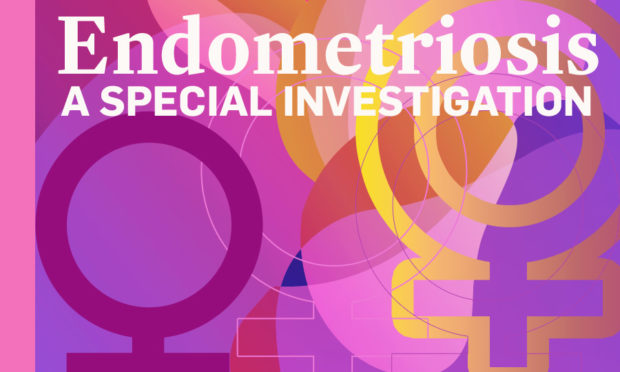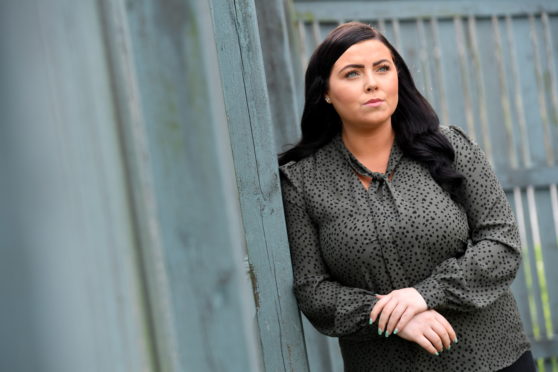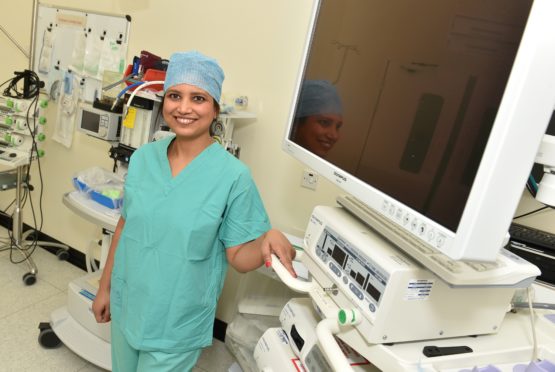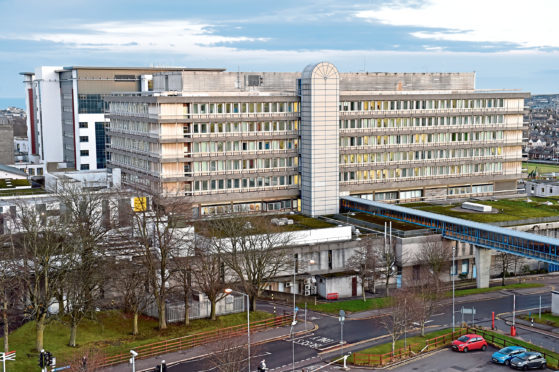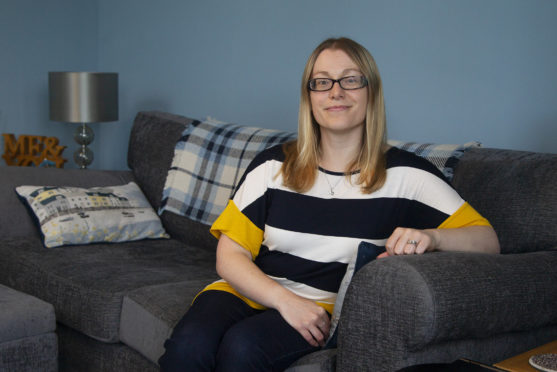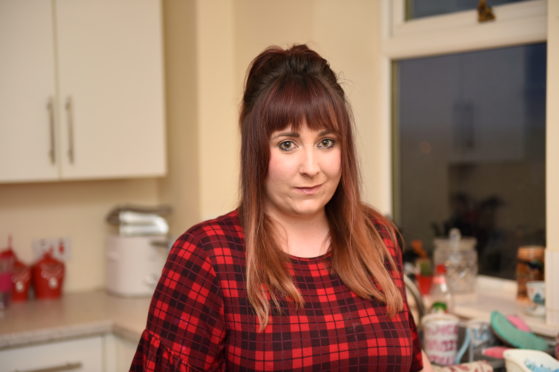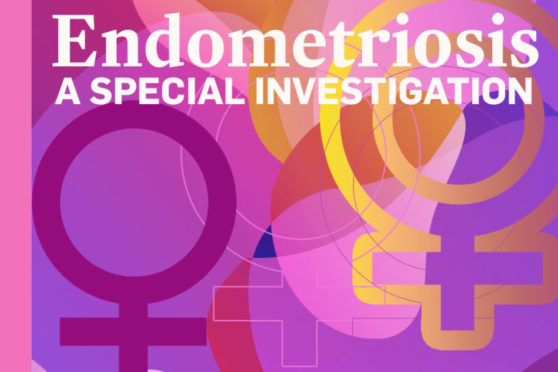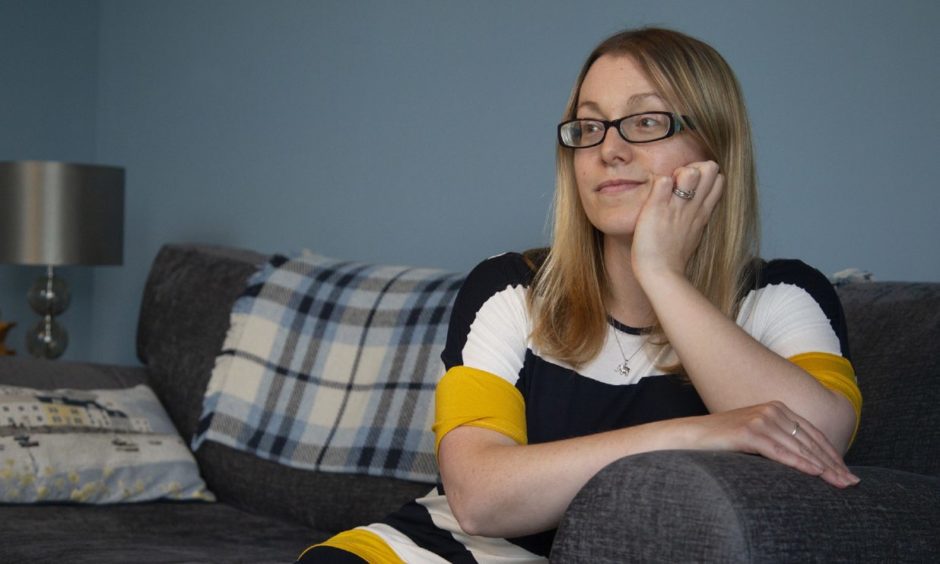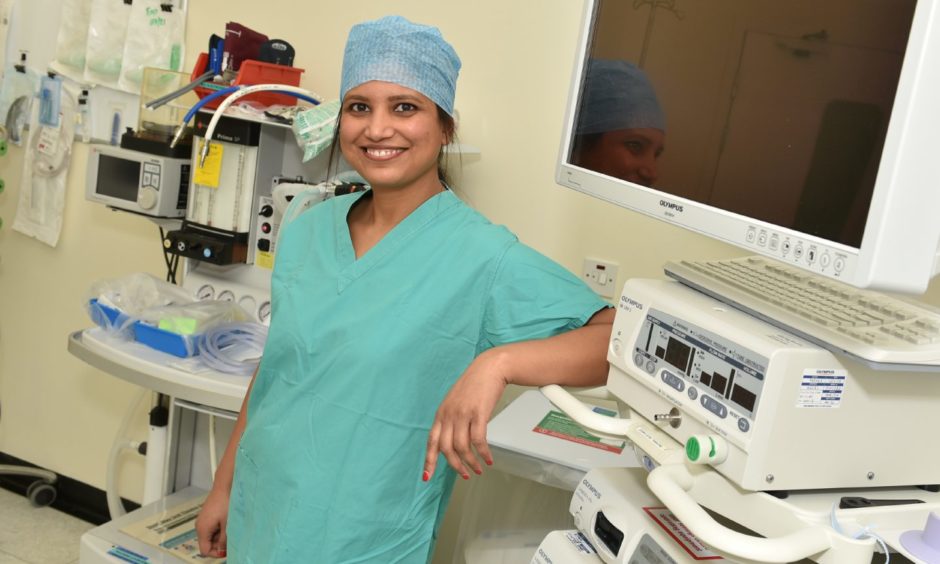Endometriosis sufferers have called for “direct action” from government as a new report shows no improvement in diagnosis in a decade – taking eight years on average.
An inquiry by the All-Party Parliamentary Group (APPG) on Endometriosis has laid bare the devastating impact the chronic condition can have on all aspects of a woman’s life and its findings have been described by sufferers as “confirmation that we’re not alone”.
More than 10,000 people were surveyed as part of the inquiry, along with healthcare professionals, and those with the condition were asked to share their personal experiences.
Its findings revealed that diagnosis times for endometriosis have not improved in more than a decade and it still takes eight years on average to get a diagnosis.
Endometriosis is a condition where tissue similar to the lining of the womb starts to grow in other places, such as the ovaries and fallopian tubes.
It affects one in 10 women in the UK, between puberty and menopause, a similar number of women affected by diabetes.
Symptoms can include pain in the lower tummy or back (pelvic pain), period pain that stops individuals doing their normal activities, pain during or after sex, difficulty getting pregnant and heavy periods.
Prior to getting a diagnosis and with symptoms, 58% visited their GP more than 10 times, 43% visited doctors in hospitals more than five times and 53% visited A&E.
A total of 90% of women would have liked access to psychological support but were not offered this and 81% said endometriosis has impacted their mental health negatively or very negatively.
In order to support the 1.5 million women with endometriosis across the UK, the APPG has called on all governments in the UK to commit to a series of support measures for those with the condition.
These include a commitment to reduce average diagnosis times with a target of four years or less by 2025, and a year or less by 2030 and a pledge to invest in research to find the cause of endometriosis, better treatment, management and diagnosis options and, one day, a cure.
The inquiry has also called on all four nations of the UK to include compulsory menstrual wellbeing in the school curriculum so that young people recognise the warning signs of menstrual health conditions and know when to seek help.
‘It’s confirmation that we’re not alone’
Lauren Marcella from Westhill, Aberdeenshire, has faced a 17-year battle with endometriosis, which began when she was aged just 11.
However, it was only seven years later that the 28-year-old was eventually diagnosed with the chronic condition.
Although the results of the survey have not surprised her, at all, Lauren described it as “heartbreaking to see these figures in black and white”.
She added: “It’s confirmation that we’re not alone.
“The fact that 81% said endometriosis has impacted their mental health negatively or very negatively confirms this is not just a physical illness but a detriment to our mental wellbeing.
“These figures give a clear-cut insight into the reality of living with the condition; if this doesn’t make government wake up and pay attention, I don’t know what will.”
Lauren’s bravery in sharing her own experience with endometriosis led to several women getting in touch for support, many of whom face long waiting lists to be seen by doctors.
Last year alone, the 28-year-old had four hospital admissions, one surgery and countless GP appointments and went through a chemically-induced menopause to help control her symptoms.
She said: “I’ve had girls saying they’re suicidal and they don’t know how long they can wait. The backlog is already long.”
I urge the Scottish Government to make menstrual wellbeing compulsory within schools.”
Lauren Marcella, endometriosis sufferer
Lauren hopes the government will see the 1.5 million voices behind the survey and take direct action now, to ensure a “huge financial saving” in the long run.
She added: “I urge the Scottish Government to make menstrual wellbeing compulsory within schools. Young women and girls with endometriosis need to be armed with the information and tools to recognise what’s happening to their bodies is in no way normal.
“The actions highlighted are a solid start to a long road ahead and I hope that in another decade we will be much further along with this fight. I am grateful for our voices to finally be heard.”
Vicky Chapman, from Arbroath, set up the Endometriosis UK Dundee Support Group in January last year.
The 32-year-old said it was ” quite a surprising statistic” to see diagnosis times had not changed in the past decade.
Despite getting access to gynaecology quite quickly, Vicky started her periods aged 11 but was not diagnosed until she was 29, meaning the endometriosis was growing for 18 years.
From my point of view, I hadn’t heard of the word endometriosis until it was suspected that was what I had on an MRI scan.”
Vicky Chapman, endometriosis sufferer
In terms of the inquiry’s findings, she would like to see its recommendations followed up across the board and would like to see pressure kept up on decision makers.
She said: “Anything to get menstrual wellbeing on the curriculum is really important.
“That diagnosis time of eight years… if people knew what they were going through earlier or had an idea of what endometriosis and polycystic ovary syndrome were, then they might actually go to their doctor sooner and be able to say, ‘well, could it be this?’
“From my point of view, I hadn’t heard of the word endometriosis until it was suspected that was what I had on an MRI scan.
“My only hope is that from the report those figures do start to improve.”
Women waiting ‘so long’ for support
Dr Lucky Saraswat, who leads the Aberdeen Endometriosis Centre, said it is “no surprise” that endometriosis takes so long to be diagnosed.
Some of the reasons for this include surgery being required to diagnose the condition and the severity of symptoms can be extremely variable.
The endometriosis specialist said: “The critical thing is the lack of awareness and no clear referral pathways which have a timeline to refer to secondary care for diagnosis of endometriosis.
“Those with infertility wait for a shorter time than those with pain and that’s because infertility guidelines have a timeline to it. If you’ve been trying for a year and you don’t get pregnant, you’re referred to secondary care.
“For pain there is no such thing so people go back and forth to GPs, they try a lot of different medical treatments before they are finally referred to secondary care and even there can be a delay at that level as well.”
Dr Saraswat welcomes government action on the issue as women have been waiting “so long” for support, and has called for more more resources, funding for pathways and more research into the condition.
She also backs the inquiry’s call to include menstrual wellbeing in the school curriculum, as it would help increase awareness.
Fantastic to see this raised today. Thank you @amessd_southend and all members of the APPG for conducting this inquiry and to the Leader of the House for committing to sharing this with Ministers. This report is of huge significance to the 1.5million with #endometriosis https://t.co/s4CrMPdSWQ
— Endometriosis UK (@EndometriosisUK) October 15, 2020
Sir David Amess MP, chair of the APPG on endometriosis, said the report provides a “stark picture” of the reality of living with the condition, including the “huge, life-long impact it may have on all aspects of life”.
He added: “It is not acceptable that endometriosis and its potentially debilitating and damaging symptoms are often ignored or not taken seriously – or downplayed as linked to the menstrual cycle and periods.
“All UK governments must take the recommendations in this report seriously and act to ensure that everyone with endometriosis has a prompt diagnosis, along with access to the physical and mental health support they need to manage their condition.”
The report should serve as a “final warning” to governments and the NHS that action must be taken on the condition, according to Emma Cox, CEO of Endometriosis UK.
She added: “The average diagnosis time for endometriosis remains at eight years – shockingly, it’s not changed in a decade.
Action is needed now, to ensure the next generation with endometriosis are not robbed of the future they deserve.”
Emma Cox, Endometriosis UK.
“Action must be taken to drive this down. The postcode lottery of access to healthcare practitioners who specialise in endometriosis needs to end.
“Implementing effective processes within the NHS will help healthcare practitioners support diagnosis and get those with endometriosis symptoms to the right place, in hospitals with the right expertise, at the right time.
“Action is needed now, to ensure the next generation with endometriosis are not robbed of the future they deserve.”
‘We are determined to improve services’
A Scottish Government spokesman said: “Living with endometriosis and chronic pain can be incredibly difficult and we are determined to improve services for all those affected.
“That is why our latest Programme for Government includes a commitment to continue development of a Women’s Health Plan to tackle women’s health inequalities, including endometriosis.
“We have also included gynaecology in the Scottish Access Collaborative and Modernising Patient Pathways programmes and are developing a pelvic pain pathway that will benefit people with endometriosis.”

